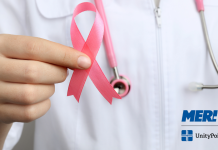Acupuncture was something I heard about but never thought I would like. I mean, why in the world would I let someone stick a bunch of needles in my body like I’m a human voodoo doll? That sounded weird and uncomfortable, and I was sure it probably didn’t even work.
Then, I turned 40, and my hormones began to try to murder me. I mean, ok, that’s not entirely accurate. It’s more like my forty-year-old, perimenopausal hormones made me a little crankier than usual. WHICH IS PRETTY CRANKY when you start from my usual. I felt stressed out, run down, constantly on edge, and incredibly anxious, at least 3 weeks out of every month. For me, anxiety manifests as anger, so I also felt mad, almost all of the time. I was snapping at my husband, my children, my students. I never had the energy or mental space to go out with my friends, and I fell into a terrible pattern of using junk food and wine to try to make myself feel better.
Enter, acupuncture.
Not only is the process of each session wonderful and relaxing (calm mind oil on my temples! a cozy, heated bed! a quiet room! soothing music! time by myself to sleep and/or mediate while good smells diffuse in the warm air around me!), but the cumulative benefits of the ancient Chinese art of healing have made me feel like me again. That’s why I want to encourage you to give this alternative therapy a chance to cure what ails you, from mood disorder to chronic pain.
To give you a better understanding of acupuncture and its benefits, I talked to my friend and acupuncturist Amanda Parish, owner of Poke Acupuncture Clinic. Amanda is a skilled and gentle practitioner, and she has helped me immeasurably on my wellness journey. I think she can help you, too, to unlock the benefits of this time-tested practice.
When should someone consider acupuncture?
AP: Someone should first consider acupuncture if they are just feeling “off” from being their happiest, healthiest self. You don’t need a medical diagnosis to seek acupuncture care. So many times we trudge through life not feeling “well” but also knowing we aren’t sick enough to have to go to the doctor. This is the perfect time to seek wellness care.. I am a generalist, so I see patients for a wide variety of reasons. A couple years ago I got an additional diplomate in Digestive Health so people now seek me out for metabolic and digestive health often too. I have many people that also come in for management of their arthritis, sinus issues, headaches, menstrual issues, and just overall wellness.
What does a typical acupuncture session consist of?
AP: As acupuncturists we feel your pulses at on each wrist and crazily enough we also ask to see your tongue. These help us gauge how the energy moves through your body and what your internal health state is. Then the needles are placed, and you typically rest for 20-30 minutes while the needles do their work. The needles take the body out of a stressed state and into a relaxed state. The nervous system calms, and most people feel really good, and often take a little nap. You should feel safe and supported.
How often should we see a provider?
AP: I encourage people to think of acupuncture as a training process for the body. It is an all natural form of therapy that guides the body on what and how to heal. The little pin-like needles we put in the body are a set of instructions for the body to listen to. Just doing acupuncture once might be relaxing, but it isn’t enough to fix imbalances in the body. Just as doing to the gym once won’t make you fit. Acupuncture treatments are cumulative and build off each other. I encourage people to never judge if acupuncture works based on one or two treatments, that’s not how it’s designed to work, and your practitioner should let you know that.
What should we look for in an acupuncturist?
AP: It’s very important to find a NCCAOM licensed acupuncture practitioner. This means they’ve had the full education, clinical training, that they keep up with their continuing education, licensing requirements, and safety & ethical standards. Acupuncture is part of an Oriental Medicine Master’s degree so a minimum of 4 years of additional education is necessary past an undergrad degree. Please don’t go to another health care provider who may specialize in another field but also be “certified in acupuncture.” Chiropractors, Physical therapists, and MDs can take short, weekend classes to be certified in acupuncture and “dry needling” but they are missing the biggest and most important chunk of education on why and how acupuncture works.
What do you love most about your job?
AP: I got into this profession because I was a patient first. I know what it feels like to be in very poor health and feeling like there’s nowhere to turn if traditional methods don’t work. I love being a beacon of hope for people and showing them that relief and better life is possible. Acupuncture works on many levels of the body; energetically, physically, and emotionally and we deserve to take time to nourish all those areas.
More questions? Contact Amanda via email at [email protected].
There you have it—how acupuncture works, what you can expect when you visit your practitioner, and why you should give it a try. Acupuncture has allowed me to relax, to step far enough away from my anxiety to make like Elsa and let it go, and to have the headspace to appreciate and nurture all of the relationships that are important to me. In short, it has made me me again. Go poke yourself, friends.














Really glad that acupuncture worked out for you. Most of the people see acupuncture that way. But you’ll never really know until you try. Great article.
Classical Herbs & Acupuncture also has some really great and efficient services. https://miamiherbs.com/